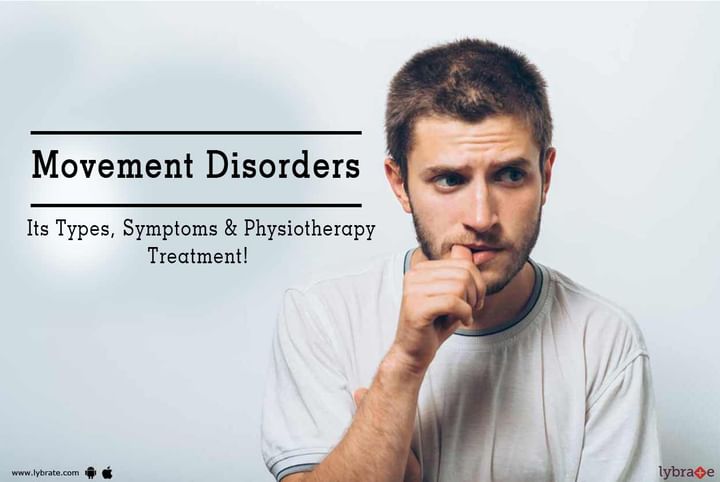Movement Disorders - Its Types, Symptoms & Physiotherapy Treatment!
‘Movement disorders’ – the term refers to a class of neurological conditions, which lead to either an increased/abnormal movement or a scarcity of involuntary and voluntary movements.
Types of Movement Disorders-
The most common types of movement disorders are –
• Myalgia – More commonly known as muscle pain, myalgia originates in any part of the body. A person with myalgia will experience achiness and soreness in the muscles, which may range from severe to mild.
Myalgia does not occur from an underlying disease. Rather, the pain develops over time, mostly due to prolonged sitting, lying down, a strenuous physical activity, strains or sprains.
• Muscular dystrophy – This refers to a group of genetic disorders that lead to weakness and loss of muscle mass. The abnormal genes cause muscle degeneration and usually begins in early childhood. Myotonic, Facioscapulohumeral (FSHD), and Limb-girdle are a few forms of muscular dystrophy.
Muscular dystrophy is characterized by symptoms like – difficulty jumping and running, muscle stiffness and pain, walking on toes, waddling gait, trouble swallowing and breathing etc.
• Dystonia – The condition involves continuous involuntary muscle contractions with repetitive, twisting movements. Dystonia may affect either a specific body part (known as focal dystonia) or the full body (known as generalized dystonia).
• Huntington’s Disease – This is an inherited, neurodegenerative condition, where the brain’s nerve cells break down over time. Huntington’s disease usually kicks in, in the 30s or 40s. The disease results in psychiatric and cognitive symptoms – amnesia, confusion, slowness in activity etc.
• Multiple System Atrophy – This is a rare neurological disorder, which affects both the autonomic nervous system – the part of the nervous system that controls involuntary actions like digestion and blood pressure – and movement. Multiple System Atrophy leads to movement disorders like Parkinsonism or ataxia.
Symptoms of this disorder include – double or blurred vision, visual disturbances, unsteady gait, loss of balance etc.
• Tourette Syndrome – This is a disorder of the nervous system, which occurs usually between one’s childhood and teenage years. The disorder is associated with vocal sounds (vocal tics) and repetitive movements (motor tics).
Physiotherapy for Movement Disorders-
In most cases, movement disorders cannot be completely cured. However, with physiotherapy, you may be able to manage the symptoms and live a better life.
Physiotherapy is based on a few physical activities or mild exercises that help improve your joint movement and builds muscle strength. This particular treatment approach centres on –
• Exercises based on daily tasks that improve muscle strength
• Activities that improve your balance and reduce the chances of falling
• Exercises to gain control over the uncontrolled movement of legs, arms, and head
• Correct posture while standing or sitting to reduce pain and increase comfort
• Cueing, repetition and movement strategies to reduce the effects of freezing
• Participating in certain functional activities that make it easier for you to move around
• The repetitive movement to trigger pathways to the brain and improve movement accuracy
• Exercise to reduce fatigue and increase stamina
• Hydrotherapy and relaxation therapy to ease muscle stiffness
Neurological disorders affect people in different ways. Physiotherapy for movement disorders is tailored according to the patient’s goal and needs so that they are able to achieve maximum physical potential.



+1.svg)
